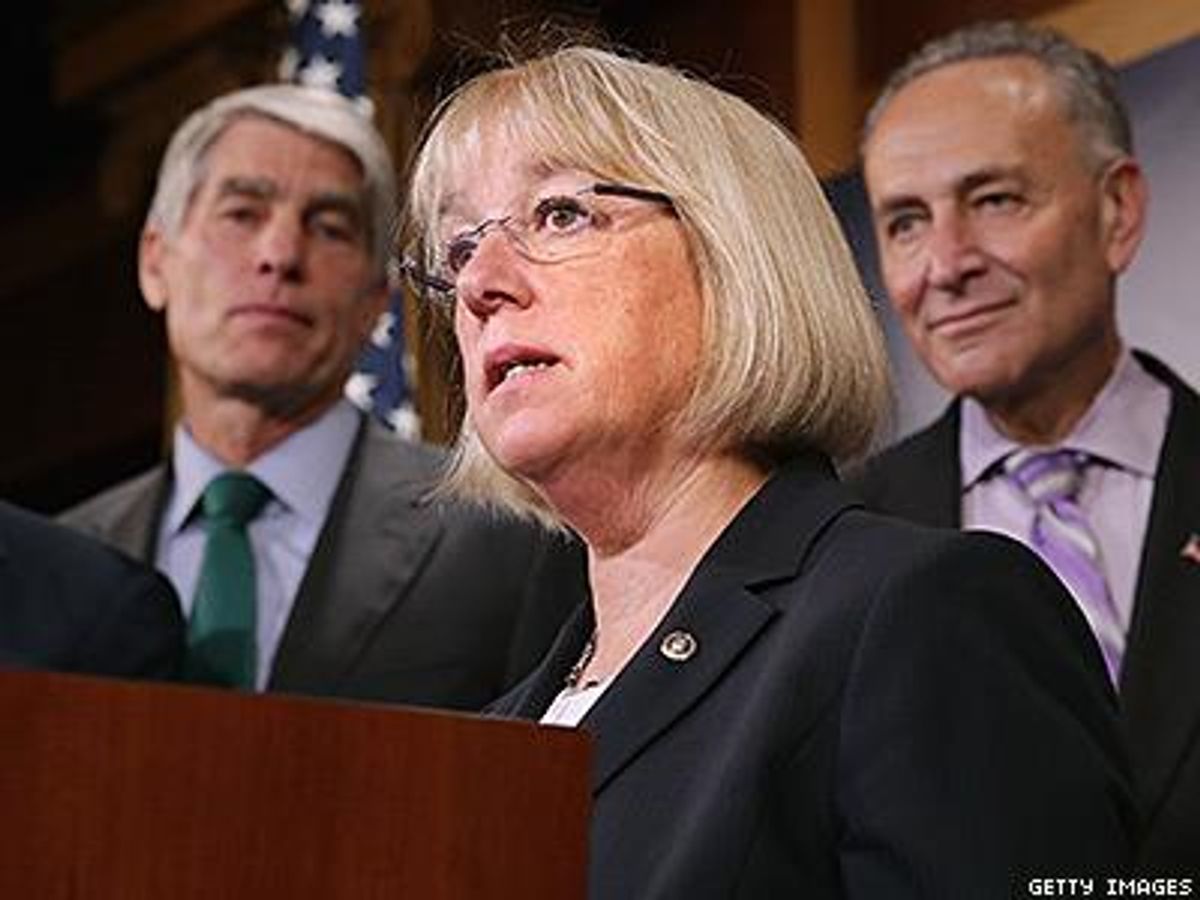Nearly two years ago, the Supreme Court struck down the definition of marriage in the Defense of Marriage Act, which paved the way for all married couples to have their marriage recognized by the federal government and led to lower courts striking down state laws and constitutional amendments banning loving same-sex couples from officially declaring their commitment to each other under the law. This summer, the Supreme Court will have another opportunity to stand on the right side of history in deciding on the issue of marriage equality once and for all. Our country has made an incredible amount of progress when it comes to advancing the equal treatment of LGBT Americans, but regardless of what the court decides this summer, we still have a lot of work to do to deliver on the promise of equality, and to fight discrimination that is still too common in states across the country.
Back in March, I was thrilled when a bipartisan majority of senators voted in favor of an amendment to the Senate budget that was modeled after the Social Security and Marriage Equality Act, which I reintroduced earlier this year. Following the DOMA decision, some married same-sex couples are still unable to receive certain marriage-related benefits provided by the Social Security Administration. The SAME Act would ensure that all legally married spouses receive equal treatment when applying for Social Security benefits, regardless of where they live, their sexual orientation, or their gender identity.
For too long, LGBT families have gone without the benefits they have earned, including Social Security survivor benefits after the death of a loved one. This places an unfair economic and emotional burden on the families of legally married same-sex couples. The fact that some married couples could be denied the benefits they have earned, especially during the time of a devastating loss, is simply unacceptable. The loving commitment a couple makes to one another in marriage does not change when they move from a state that recognizes marriage equality to a state that does not, and neither should the federal benefits they receive.
With that vote, 57 senators, including 11 Republicans, recognized that equality under our federal laws should not end at state lines. It was a strong step forward for equality that we do not see enough of in Congress, and it marked the largest number of Republican senators to vote in support of LGBT equality.
I understand the realities of a Republican-controlled Congress, and I know that many of my colleagues are still on the wrong side of history when it comes to supporting the equal treatment of LGBT Americans, but I am proud that legislators on both sides of the aisle stood up for equal treatment under the law, and I hope we can continue to build on that progress.
Congress moving forward with the SAME Act would be an important step in the right direction, but it's not the only step we need to take. We are at a pivotal moment when the highest court in our nation will consider the question of marriage equality once and for all. I am hopeful and confident that the Supreme Court will do what is right and rule in favor of marriage equality. However, as we eagerly wait for that day, it is critical that we redouble our efforts to promote equality and prohibit discrimination, because regardless of how the Supreme Court rules, there is no federal law to prohibit discrimination against LGBT Americans.
In many states, it is legal to deny a loan, refuse service at a restaurant, or hire and fire because of a person's sexual orientation or gender identity. And while we have seen the steady march of progress toward marriage equality, we continue to see some states protect prejudice and discrimination under the guise of religious freedom.
But these state laws have proven to be little more than licenses to discriminate. That is wrong and it is inconsistent with the values of our country. I challenge those 11 Republican senators who voted in favor of the SAME Act to join with my Democratic colleagues to support legislation that promotes LGBT equality and ensures that discrimination based on a person's sexual orientation or gender identity is not tolerated in our country.
I am so proud of the progress our country has made in recent years, but with each step forward, we are reminded that there is still so much more that needs to be done. I am going to work with all of my colleagues to fight discrimination and work to advance equal treatment for all.
PATTY MURRAY is the senior U.S. senator from Washington, serving since 1993.


















































































